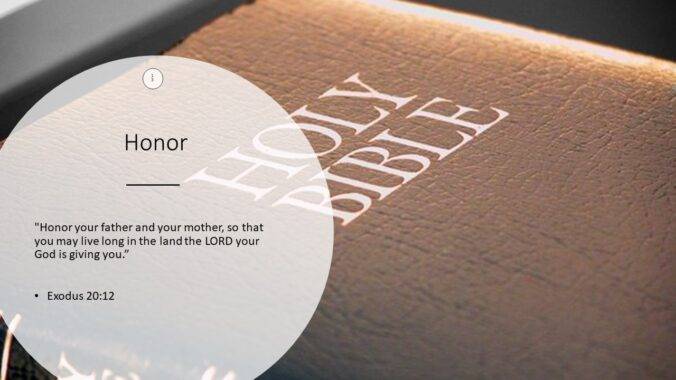I am fortunate that both my mom (93) and mother-in-law (86) are still living and doing quite well. As I have visited with them and their close friends, there is a tremendous amount of wit and wisdom to glean from these encounters. Unfortunately, one of the things I have also witnessed in our culture is a loss or lack of honor towards those who have lived more years than most. I would like to challenge myself and the reader to make a resolution for 2022 to honor our older citizens – especially our parents. What does it mean to honor an older person? Often hearing a familiar principle from a different cultural context can clarify its meaning. In recent years, I’ve attempted to learn more about the ancient philosophies of Taoism, Confucianism, and Buddhism. These belief systems share many core principles with the Judeo-Christian ethics and scriptures that are more familiar to us Westerners than these less represented traditions.
Take the concept of Filial Piety, one of the eight virtues of Confucianism. Scholars attribute the Eight Virtues to a line in the Sage Emperor Guan’s Book of Enlightenment, saying
“It is through Filial Piety, Sibling Harmony, Dedication, Trustworthiness, Propriety, Sacrifice, Honor, and Sense of Shame that we become fully human.”
Filial Piety means to be good to one’s parents; to take care of one’s parents; to engage in good conduct not just towards parents but also outside the home so as to bring a good name to one’s parents and ancestors. The Fung Loy Kok Institute of Taoism further expounds on the concept of filial piety by stating,
“You should also attend to your parents’ well-being. There are three basic needs you must provide for your parents. First, you should provide for their food and clothing. Second, when they are ill, you must take responsibility for nursing them back to health. Third, when they die, you must provide them with proper burial and care for their graves. As a son or daughter, whether you are rich or poor, whatever profession you are engaged in, whether you are married or not, whether you have children or not, if you can perform these three deeds with sincerity and dedication, your parents will be happy while they are alive and rest in peace when they are deceased. Your parents cared for you without selfish interests. Your mother carried you in her womb for ten lunar months and nursed you for three years. Your parents constantly tended to your needs while you were growing up. You should show your gratitude to them by fulfilling the virtue of filial piety.
For we Westerners, the concept of Filial Piety is rooted in both the Old and New Testament scriptures. Exodus 20:12 commands,
“Honor your father and your mother, so that you may live long in the land the LORD your God is giving you.” (New International Version). Ephesians 6:2-3 repeats the same command and adds parenthetically “which is the only command with a promise.”
When parents age to the point where they lose independence or capacity to perform certain functions of daily living, families should adopt and adhere to a personal code of honor that maintains the dignity that the older person deserves. In a curriculum developed to teach adult children how to be effective financial caregivers, I provide a model code of honor that is available for download here.
